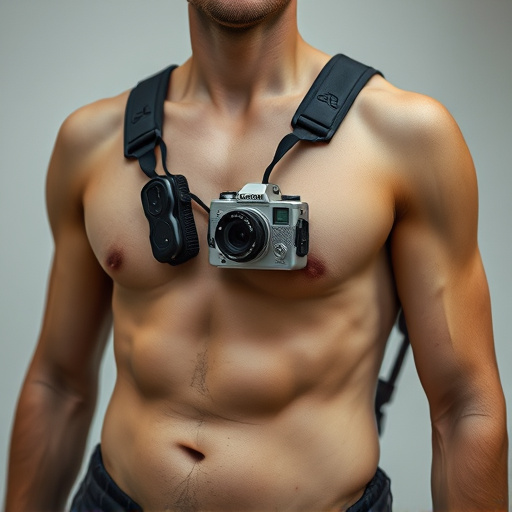Hidden personal body cameras, ranging from tiny button cameras to advanced wearables like watches or sunglasses, secretly capture high-quality video and audio. Popular for personal safety, evidence collection, surveillance, and investigative purposes, these tools offer a unique "truth in plain sight" perspective. While enhancing security, peace of mind, and transparency, their widespread use raises ethical concerns regarding privacy, consent, data security, and potential misuse of recorded footage.
“Uncover the power of personal hidden body cameras—a growing trend with far-reaching implications. This technology allows individuals to discreetly capture and record intimate moments, offering a unique perspective on daily life. In this comprehensive guide, we explore the fundamentals of these devices, from their technical aspects to the myriad benefits they offer. From enhancing safety to providing legal protection, hidden body cameras raise ethical questions that must be navigated carefully. Get ready to delve into the fascinating world of personal surveillance.”
Understanding Hidden Personal Body Cameras: The Basics
Hidden personal body cameras, also known as wearables or hidden recordings devices, are small, discreet cameras that individuals can wear on their person to record video and audio secretly. These compact devices have gained popularity for various reasons, from personal safety and evidence collection to surveillance and investigative purposes. The basic function of a hidden personal body camera is to capture high-quality footage without the subject’s knowledge, offering a unique perspective often referred to as “the truth in plain sight.”
These cameras come in diverse forms, from small button cameras that can be clipped onto clothing to more advanced models built into accessories like watches or sunglasses. They are designed to be easily portable and versatile, allowing users to capture unexpected moments, interactions, or events. The recorded content can then be reviewed, shared, or stored for future reference, making hidden personal body cameras valuable tools in an increasingly digital world.
Benefits and Applications of Using a Hidden Personal Body Camera
A hidden personal body camera offers a multitude of benefits and applications in today’s world. These compact, wearable devices provide individuals with an enhanced sense of security and peace of mind. By capturing video and audio evidence discreetly, users can protect themselves from potential threats or misunderstandings. Whether it’s for personal safety while walking alone at night, documenting interactions with law enforcement, or even monitoring the behavior of caregivers in a residential setting, these cameras serve as powerful tools.
The versatility of hidden personal body cameras is another significant advantage. They are not limited to extreme situations; instead, they find utility in everyday scenarios. For example, vloggers and content creators can use them to capture authentic, unscripted moments, enhancing their storytelling. Travelers may employ them for cultural immersion, documenting experiences in a way that traditional photography might miss. Additionally, these cameras facilitate accountability by providing transparent evidence in various situations, fostering trust and clarity of communication.
Ethical Considerations and Legal Implications: Navigating the Landscape
The widespread adoption of hidden personal body cameras, often driven by individual safety concerns and law enforcement needs, raises significant ethical considerations and legal implications. On one hand, these devices can serve as powerful tools for accountability, offering tangible evidence in situations where human memory or perception might fail. They have been championed by individuals seeking protection in high-risk environments, such as those working in security, delivery services, or even everyday citizens concerned about potential assaults or unfair treatment.
However, the use of hidden personal body cameras also invites privacy concerns and ethical dilemmas. Balancing individual autonomy and the right to privacy with the need for safety and justice is a delicate task. Legal frameworks must carefully navigate this landscape, striking a balance that respects civil liberties while allowing for the responsible deployment of these technologies. This involves considering issues like informed consent, data storage and security, and the potential for misuse or abuse of recorded footage.
